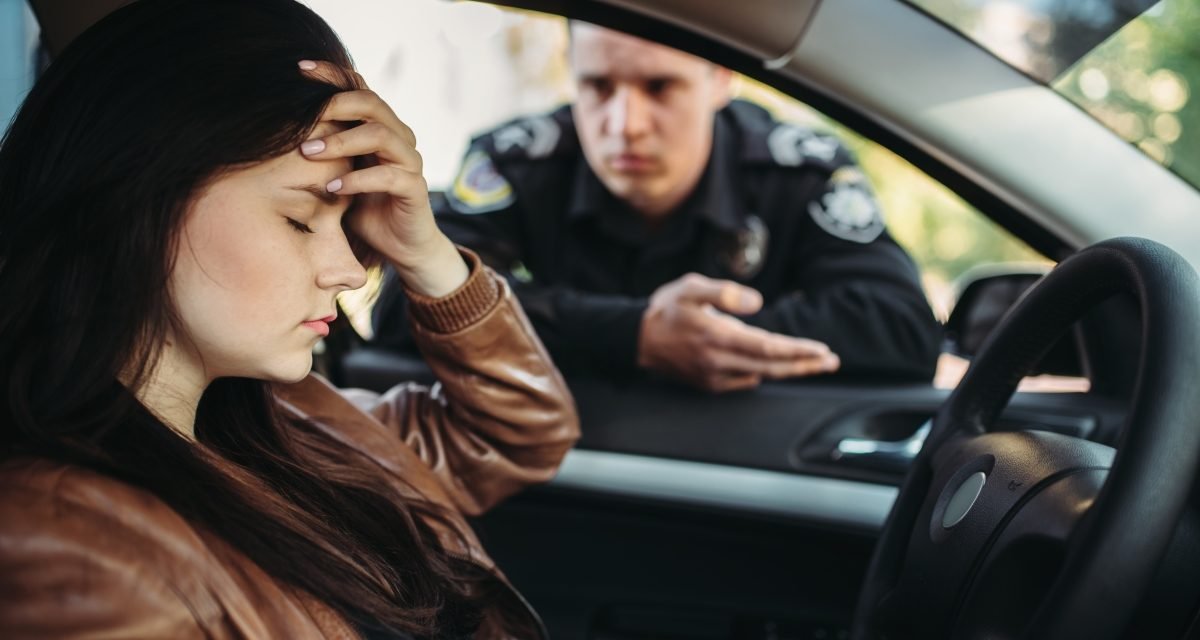
What Are the Consequences of Driving Without a License?
Congress has passed laws to protect all individuals on the road and to help prevent traffic accidents. A fundamental principle guiding the laws is that driving is a privilege and as such, each person who wants to to drive should apply for and pass both a road test and a written test. The tests prove the applicant possesses the required level of ability to operate a motor vehicle safely and within a given set of rules.
Drivers in all fifty states must recognize that a driver license carries a specific responsibility to operate their vehicle at a safe speed while obeying all traffic laws, including driving without the influence of drugs or alcohol. Unlicensed drivers in every state subject themselves to severe punishment that includes, in some cases, jail time.
Motives for Driving Without a License
While it’s true that some people may have never applied for a license, some drive anyway, and often, unlicensed drivers have no legal status and can’t legally obtain a license. States with high numbers of undocumented illegal aliens, such as California and Illinois, passed laws allowing these individuals to have driver’s licenses.
Some individuals fall into a category of extraordinary circumstances that allows them to apply for a hardship license or permit, in some cases. Failure to receive a hardship license may cause a person to drive regardless because the perceived need to drive is too high.

Typically, if a state allows them, it may grant a hardship license to a teen driver fourteen or fifteen years old in a rural area when it’s needed to drive to and from school or work. Work requirements carry minimum work hours, too. The state of Wyoming mandates applicants to work at least ten hours per week, for example.
Although there is a legitimate need for youngsters to drive for specific reasons in certain areas, the driver training aspect is paramount for safety reasons. Not only is education central, but avoiding accidents is equally essential. Accidents sometimes happen, and it’s wise to contact a Wyoming car accident attorney when the unthinkable happens.
Nationwide, the percentage of unlicensed drivers due to suspension or revocation is 7.8 percent. Add to that another 5 percent of unlicensed drivers for other reasons. Data from a study by the AAA Foundation for Traffic Safety shows that in the years 2007 to 2009, 18.2 percent of fatal crashes involved unlicensed or invalidly licensed drivers, killing 21,049 people.
Other motives encouraging driving without a license include a suspended license or a revocation because of past crimes or other legal trouble. Depending on the state’s laws, the person could face charges for driving without a license or worse, driving with a suspended or revoked license, bringing about stiffer fines and possible incarceration.
Consequences of Driving Without a License
Individuals caught driving without a valid driver’s license face varying levels of punishment, depending on the state. Typically, a person driving without a license or with an expired one won’t receive harsh punishment like those given to drivers with suspended or revoked licenses. Still, fines, sometimes large, are imposed for these misdemeanors.
The first offense for unlicensed drivers in Wyoming results in a maximum $750 fine or up to six months in jail, or both.

Suppose a person has a background of DUIs or other severe violations. In that case, these circumstances may lead to very harsh penalties that can include jail time or an extension of an already suspended or revoked license. Also, the crushing financial penalties are exacerbated with huge auto insurance premiums, if the person can find coverage under these conditions.
Caught Driving Without Proof of License
Occasionally, a driver may forget to bring their valid license with them while driving. It may seem like a minor issue, but the laws specifically require that a licensed driver carry a valid license on their person while driving a vehicle.
Police and the courts take violations for driving without proof of license very seriously. The reason is that the officer and the court must assume the driver is unlicensed until they prove they have a valid license. It now becomes the driver’s responsibility to show the court a valid license.




